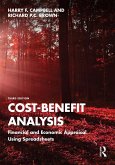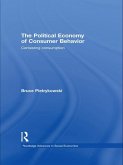How should policy analysts assess 'benefit validity' when behavioral anomalies appear relevant? David L. Weimer provides thoughtful answers through practical guidelines. Behavioral economists have identified a number of situations in which people appear not to behave according to the neoclassical assumptions underpinning welfare economics and its application to the assessment of the efficiency of proposed public policies through cost-benefit analysis. This book introduces the concept of benefit validity as a criterion for estimating benefits from observed or stated preference studies, and provides practical guidelines to help analysts accommodate behavioral findings. It considers benefit validity in four areas: violations of expected utility theory, unexpectedly large differences between willingness to pay and willingness to accept, non-exponential discounting, and harmful addiction. In addition to its immediate value to practicing policy analysts, it helps behavioral economists identify issues where their research programs can make practical contributions to better policy analysis.
Dieser Download kann aus rechtlichen Gründen nur mit Rechnungsadresse in A, B, BG, CY, CZ, D, DK, EW, E, FIN, F, GR, HR, H, IRL, I, LT, L, LR, M, NL, PL, P, R, S, SLO, SK ausgeliefert werden.









